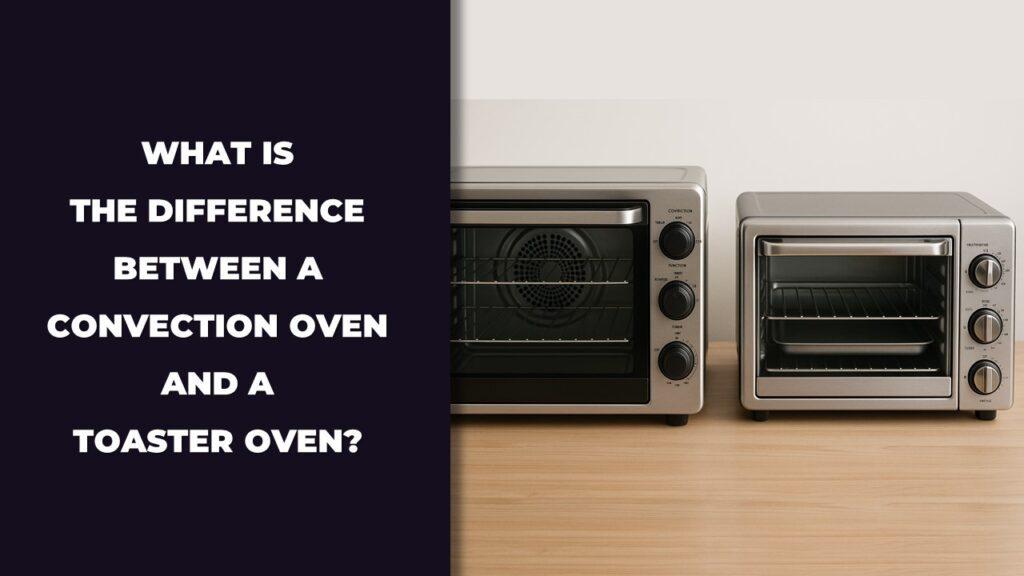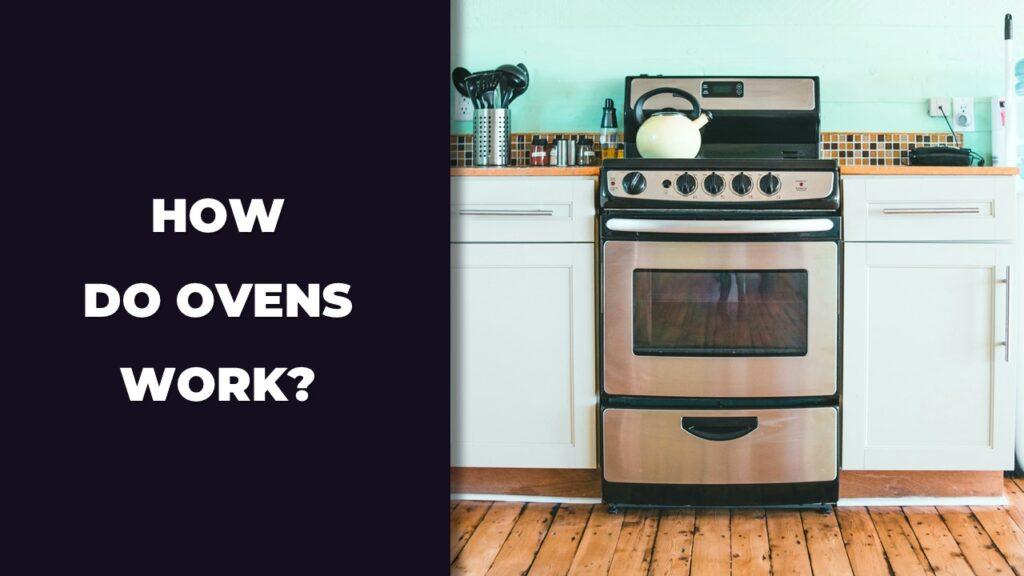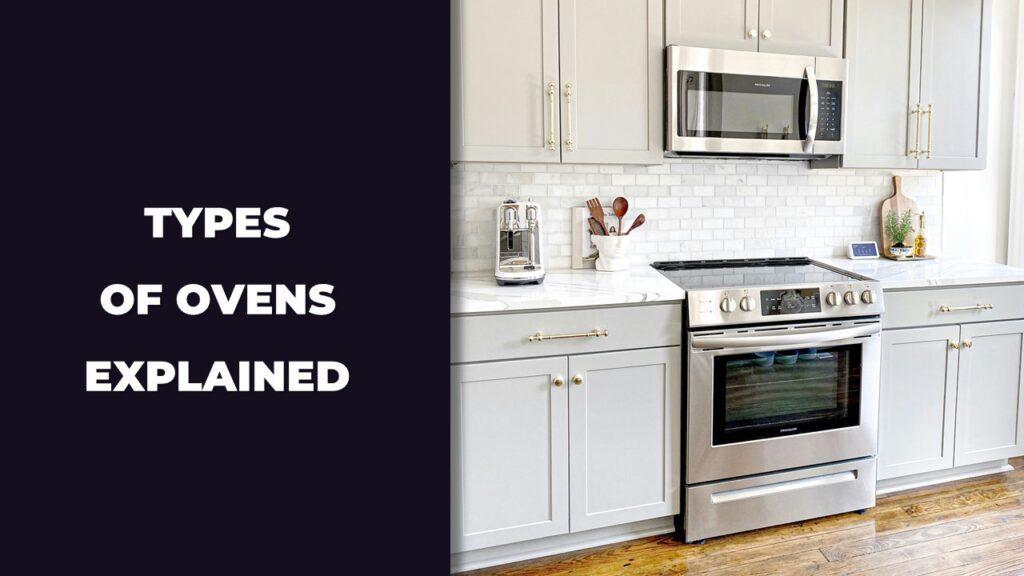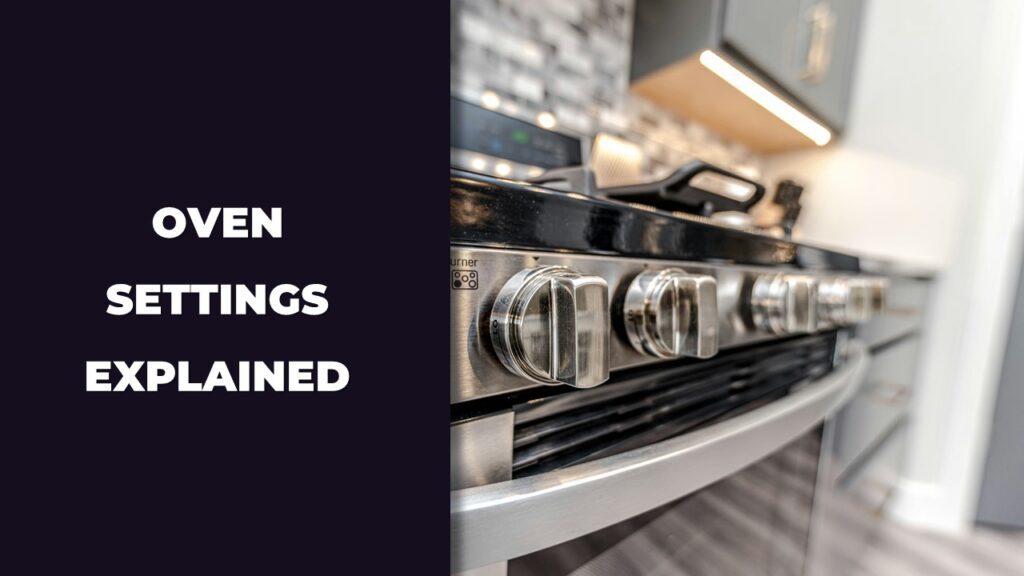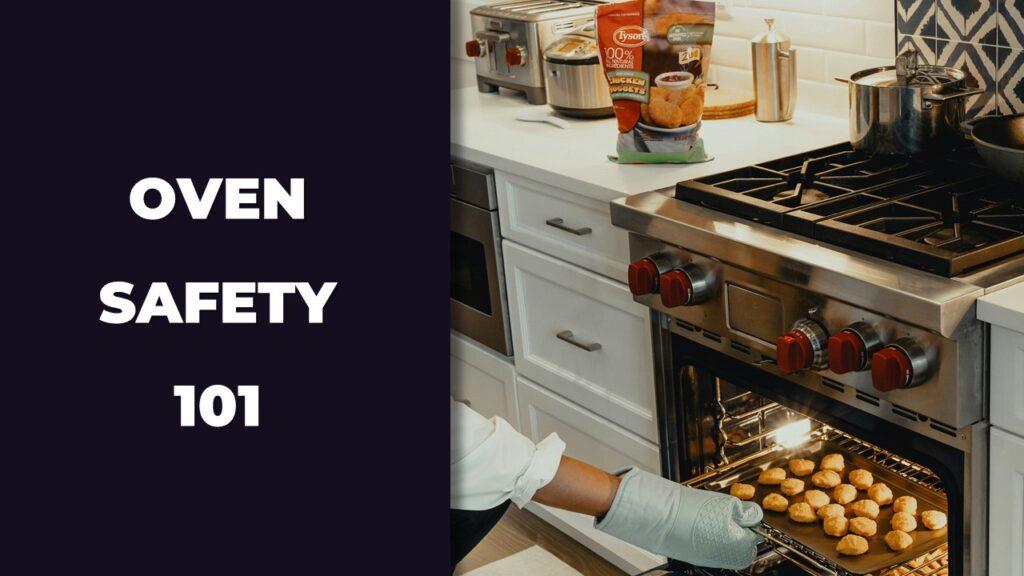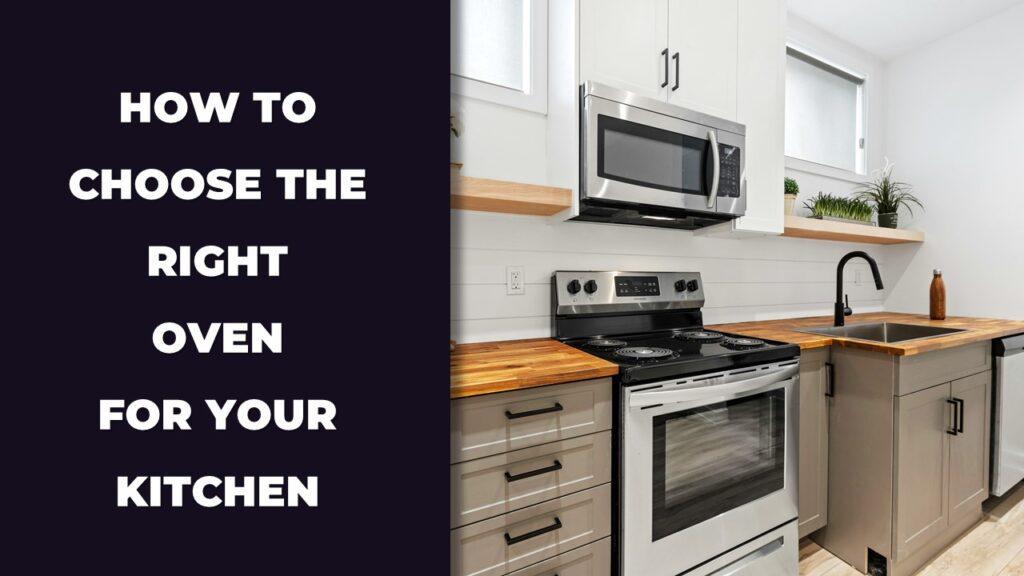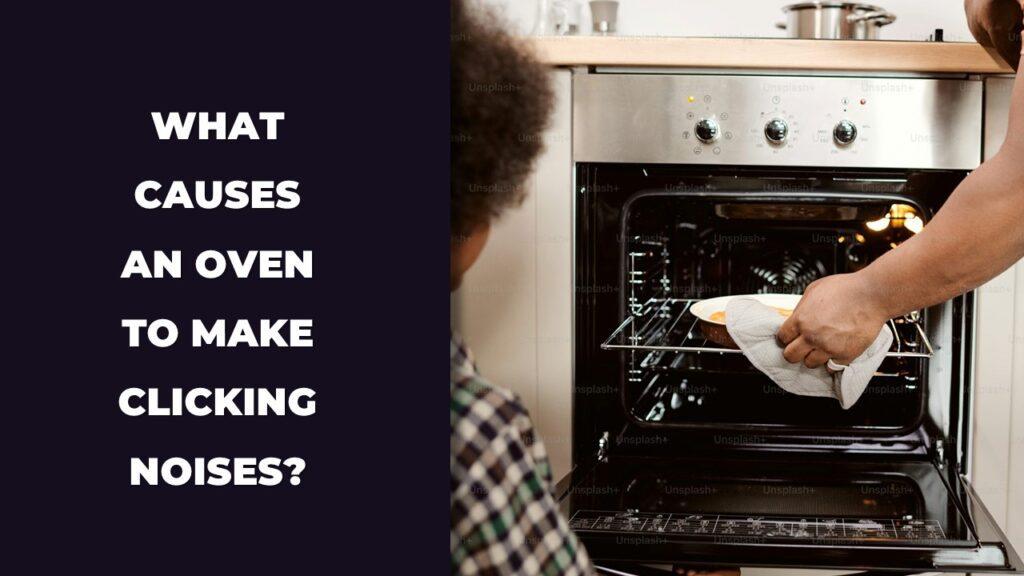
An oven makes clicking noises for a few reasons: some are totally normal, while others mean something needs fixing. Normal clicks can happen when the oven heats up or cools down, as metal parts expand and contract. You might also hear clicks from the igniter lighting the gas, or from electric relays switching the heating elements on and off.
In this article, we’re going to break down the most common causes of oven clicking—what’s normal, what’s not, and when it’s time to get help. Whether you have a gas or electric oven, we’ll help you figure out what that sound really means.
Quick Summary: Why Your Oven Is Clicking
Wondering why your oven is clicking? This quick summary breaks down the most common reasons gas and electric ovens make clicking noises—what’s normal, what’s not, and what you should do next.
| Cause of Clicking | Applies To | Normal or Problem? | What to Do |
| Metal expansion/contraction | Gas & Electric Ovens | Normal | No action needed |
| Control relay cycling heating elements | Electric Ovens | Normal | No action needed |
| Igniter clicking before flame | Gas Ovens | Normal | Wait for flame to ignite |
| Clicking when switching modes (bake/broil) | Convection Ovens | Normal | No action needed |
| Continuous clicking without ignition | Gas Ovens | Problem | Check igniter, burner ports, or spark module |
| Clicking after cleaning | Gas Ovens | Temporary (if wet) | Let oven dry fully |
| Dirty or clogged burner ports | Gas Ovens | Problem | Clean ports thoroughly |
| Misaligned burner caps | Gas Ovens | Problem | Reseat burner caps properly |
| Failing heating element | Electric Ovens | Problem | Inspect or replace element |
| Faulty thermostat or temperature sensor | Electric Ovens | Problem | Needs professional inspection |
| Control board or selector switch malfunction | Electric Ovens | Problem | Replace faulty parts |
| Warped or obstructed fan blade | Convection Ovens | Problem | Adjust or replace fan |
| Loose oven panels or screws | Gas & Electric Ovens | Problem (mechanical noise) | Tighten or secure loose parts |
| Clicking mechanical timer (older ovens) | Gas & Electric Ovens | Problem (if stuck) | Replace or repair timer |
Normal Oven Clicking Noises That Are Nothing to Worry About
Some oven clicking noises are completely normal, especially during regular heating cycles. These sounds usually come from temperature regulation, metal expansion, or ignition processes that don’t need repair or concern.
Here’s what’s considered harmless:
- Thermal expansion and contraction: Metal racks, liners, and internal panels can make popping or clicking sounds as they expand when heating and contract when cooling. It’s a natural response to temperature changes and often more noticeable in newer or stainless-steel ovens.
- Control relays switching on and off: Most modern electric ovens use control relays to regulate heat. These relays click on and off to manage the heating elements, especially during preheating or temperature maintenance.
- Ignition cycle in gas ovens: A series of clicks is normal when a gas oven starts up. These come from the igniter trying to light the burner. Once the gas ignites, you’ll often hear a soft “whoosh” as the flame catches. If it stops after ignition, there’s no issue.
- Mode switching in multifunction ovens: If your oven switches between bake, broil, or convection modes, clicking may occur when different elements or fans turn on or off. This is a built-in behavior in dual-mode or convection systems.
Oven Clicking Sounds That May Indicate a Problem
If your oven keeps clicking, clicks irregularly, or fails to ignite, it may be signaling a repair issue. This is especially common in gas ovens that struggle with ignition or electric models showing electrical faults.
Here are common causes that require attention:
Gas Oven Keeps Clicking and Won’t Light
- Faulty Spark Igniter or Ignition Module: If the clicking continues for more than 10–15 seconds without flame, your spark igniter might be weak, misaligned, or worn out. You might also notice a faint gas smell without ignition. This is not safe to ignore.
- Loose or Worn Ignition Wiring: Over time, wiring near the igniter can become loose or corroded. This disrupts the spark signal, causing erratic clicking or complete failure to ignite.
Clicking After Cleaning Due to Moisture in Burners
Moisture trapped around burner heads, electrodes, or igniter tips after cleaning can cause clicking to continue. In most cases, the sound stops once everything dries completely.
Clogged or Dirty Burner Ports Causing Repeated Clicking
Grease, food debris, or carbon buildup around burner ports restricts gas flow. This prevents proper ignition, causing repeated clicking with a weak or delayed flame.
Misaligned or Loose Burner Cap Causing Ignition Issues
If the burner cap isn’t seated properly, gas won’t distribute evenly. The igniter will keep clicking in an attempt to light the burner. This often happens after cleaning or removing burner parts.
Clicking Noises in Electric Ovens: Warning Signs
Clicking sounds in electric ovens can signal a problem when they’re frequent, irregular, or paired with poor heating performance. Unlike gas ovens, these sounds often point to electrical or sensor issues that may affect cooking accuracy or safety. Here’s what to check:
Clicking Due to a Damaged or Failing Heating Element
When a heating element is wearing out, it may click during preheating or struggle to maintain temperature. You might notice uneven cooking, longer bake times, or a darkened element that no longer glows orange. Clicking in this case may come from the relay trying to re-engage the faulty element.
Frequent Clicking from a Faulty Oven Thermostat or Sensor
The thermostat regulates oven temperature, and if it sends false readings, the control board may rapidly cycle the element on and off. This creates repetitive clicking, and often results in unstable oven temperatures or undercooked food.
Control Board or Selector Switch Clicking Repeatedly
A failing control board or selector switch can get stuck in a loop, making continuous clicking sounds even when the oven isn’t heating. You may also notice flickering displays, error codes, or a non-responsive oven. This is often a sign of worn-out relays or internal short circuits.
Clicking Noises from Fans or Internal Moving Parts
Clicking sounds that come from the back or sides of the oven often relate to fan problems or loose parts. These are mechanical noises that tend to repeat during airflow cycles or after the oven shuts down. Here’s what might be causing them:
Convection Fan Blade Causing Ticking or Clicking Sounds
A warped or loose convection fan blade may tap against the housing or internal panels while spinning. This creates a steady clicking or ticking noise, especially during convection cooking modes. The sound often gets louder as the fan speeds up and quieter as it slows down.
Cooling Fan Making Clicking or Rattling Sounds
After the oven is turned off, the cooling fan continues running to lower internal temperatures. If the motor housing is loose or the fan is misaligned, you might hear ongoing clicking or rattling during the cool-down phase. This issue can worsen over time and may affect heat distribution.
Mechanical and Physical Issues That Can Cause Clicking
Some oven clicking noises come from loose parts or old mechanical components rather than electrical or gas issues. These sounds often develop gradually and can mimic more serious problems if left unchecked.
Loose Oven Panels or Interior Screws Making Noise
If the oven clicks when the fan runs, during preheating, or while opening and closing the door, it could be due to loose screws or metal panels vibrating inside the unit. These noises often echo from the back or sides and can sound like electrical relay clicks even when no elements are cycling.
Mechanical Timer or Clock Producing Ticking Sounds
Older ovens that use manual timers or clocks may produce a steady, rhythmic ticking. This is a mechanical function and not related to heating. However, if the timer becomes stuck or worn out, the ticking may increase or continue without advancing, signaling the need for replacement.
How to Troubleshoot Oven Clicking Noises
To troubleshoot clicking noises in your oven, observe when and where the sound happens, then check specific components based on the oven type. Identifying whether it’s electrical, gas-related, or mechanical helps narrow down the issue quickly.
Try the following steps:
- Identify whether your oven is gas or electric. Clicking during ignition points to gas issues, while electric ovens usually involve relays, sensors, or heating elements.
- Pay attention to the timing of the clicking. Does it happen only at startup, randomly during cooking, or after shutting off? The pattern helps pinpoint the cause.
- Listen to the intensity and frequency. Constant clicking or loud mechanical sounds are more likely to indicate a problem than occasional soft ticks.
- Inspect key areas inside and behind the oven. Look for loose burner caps, blocked gas ports, faulty igniters, worn heating elements, or warped fan blades. For electric ovens, also check if the control panel or selector switch behaves oddly.
- Try safe resets. Let the oven dry if it was cleaned recently. Reposition burner parts, clean debris, or unplug the oven for a few minutes to reset the electronics.
If the sound doesn’t go away or worsens, it’s best to call an appliance repair technician.
Preventative Maintenance to Stop Clicking Issues Before They Start
Simple, regular maintenance can prevent most oven clicking noises before they turn into bigger problems. Whether you use a gas or electric oven, staying ahead of grime, moisture, and wear makes a big difference.
Here are smart maintenance tips:
- Clean burner heads and ignition points monthly. Use a soft brush or a pin to clear any food particles, grease, or corrosion that might interfere with ignition or gas flow.
- Always let the igniter and burner area dry fully after cleaning. Trapped moisture is one of the most common causes of persistent clicking in gas ovens.
- Check fan blades and motor once a year. If your oven uses convection, make sure the blades spin freely and aren’t rubbing against the housing.
- Inspect heating elements and thermostat wiring in electric ovens. Look for signs of cracking, discoloration, or flickering when in use.
- Tighten visible screws and check oven panels for vibration. A simple screwdriver can stop a clicking sound that’s been caused by a loose panel for months.
Preventive care not only keeps the oven quieter, but also helps it cook more efficiently and safely.
When to Call a Professional for Oven Clicking Noises
You should call a professional if your oven keeps clicking, doesn’t ignite, or shows signs of electrical or gas failure. Persistent or unusual clicking sounds often point to internal issues that require expert diagnosis and repair.
Here are the warning signs to watch for:
- Clicking lasts longer than 20–30 seconds in a gas oven, and the flame never ignites. This could mean a faulty igniter or gas valve problem, which can be dangerous if left untreated.
- The oven clicks when turned off or when no controls are being used. This might suggest a stuck relay, failing control board, or moisture affecting components.
- You smell gas without ignition. This is a red flag and should be handled immediately by a qualified technician.
- You notice sparks, flickering displays, or burning smells. These are signs of electrical failure that shouldn’t be ignored.
- Troubleshooting doesn’t stop the noise. If you’ve cleaned the burners, dried the oven, and checked visible parts with no improvement, it’s time to call in help.
Conclusion
Oven clicking noises can be completely normal—or a warning that something’s wrong. Quick clicking during preheat, cycling relays, or ignition in gas models is usually fine. But if the noise is constant, irregular, or stops the oven from working properly, it’s worth checking more closely.
Gas ovens that click but don’t light may have dirty burners, wet igniters, or worn-out spark modules. Electric ovens may click from relay issues, a bad thermostat, or a failing heating element. Mechanical noises, like a ticking fan or loose panel, also show up over time in both types of ovens.
If you’ve cleaned, dried, and inspected everything but the clicking continues, don’t risk safety. A licensed technician can inspect your oven, fix the root cause, and help you avoid more expensive problems later on. Quiet ovens tend to work better—and cook more evenly too.
Related FAQs
Why does my gas oven keep clicking but won’t start?
A gas oven that keeps clicking but won’t ignite often has a faulty igniter, wet ignition components, or a blocked burner preventing the flame from catching.
Is it safe to use my oven if it keeps clicking?
If your oven lights normally and there’s no smell of gas, it may be safe short-term. But if clicking continues or starts unexpectedly, it should be checked.
Can I fix a clicking oven igniter myself?
You can clean the igniter area and dry any moisture, but replacing the igniter or spark module should be done by a professional to avoid electrical risks.
What should I check first if my oven clicks randomly?
Start by checking the burner caps, clearing any debris from ports, and making sure all ignition areas are completely dry—especially after cleaning.
Do electric ovens make clicking noises too?
Yes, clicking in electric ovens is normal when relays turn heating elements on or off. It becomes a concern if it’s paired with poor heating or display issues.
Why does my oven click after I turn it off?
Post-use clicking often comes from metal contracting or cooling fans still running. These sounds are common and usually not a sign of damage.

Max Fletcher is a self-taught electrician-turned-baker who combines technical know-how with a love for baking to help readers get the most from their ovens. Drawing on years of electrical experience and hands-on kitchen testing, he shares practical guides and reviews on oven performance, safety, and baking results, all with the heart of a family man who believes great food starts with understanding your tools.

